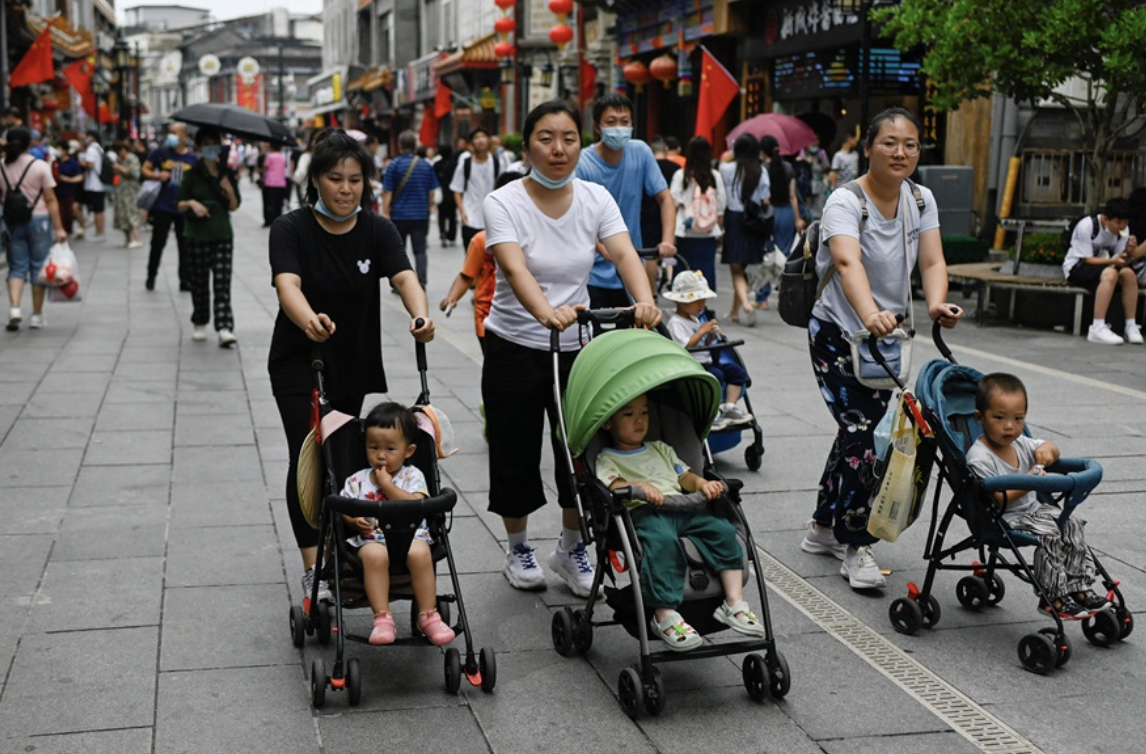In a social media post in April, Fang Qing clearly stated her desire to find a partner for marriage. They would live separately, manage their finances independently, but appear together for holidays, events, or when necessary.
Nearly 100 people responded. After two months of filtering and meeting five candidates, she chose a suitable partner.
This "cooperative marriage" model, where two people play the roles of husband and wife but operate their family according to an agreement, maintaining independence like business partners rather than a traditional bond, is becoming increasingly common in China.
For Fang Qing, this choice fulfills her grandfather's wish. Her future husband is a year older and works in Beijing. Over the past three months, they have frequently dined and watched movies together, and Fang has even started to develop feelings for him, though she admits each meeting was primarily to assess his suitability for marriage.
Fang's friends questioned her decision, asking why marry without love, even suggesting it was a sham marriage. In China, gay men and women often marry someone of the opposite sex to meet societal expectations, known as "hinh thuc" marriages, a long-standing practice.
However, now many heterosexual individuals are also choosing cooperative marriages, creating a new trend.
Fang Qing hadn't intended to marry but decided to find a partner to fulfill her ailing grandfather's wish to see her settled down before he passed away. She had experienced two serious relationships and considered marriage, but both ended.
Fang plans to marry within the next year. Both families have met and agreed on a fabricated story of how they met, while the rest of their relationship is genuine. As agreed, they will live separately, respect each other's privacy, and only appear together when necessary. Because her partner wants children, Fang hasn't ruled out the possibility of having them, but affirms the responsibility of raising them rests with him.
Fang says she isn't sad about marrying to please her family but is annoyed by the suspicion that her marriage is fake. For her, putting her grandparents at ease is a responsibility that doesn't conflict with pursuing her own life.
"Marriage is just finding a companion, respecting the commitment like business partners," she said.
Gui Fangfang, a lawyer at Merits and Tree Law Office in Shanghai, said she has encountered many cases of cooperative and "hinh thuc" marriages in recent years. According to her, these new forms of marriage give women more of a voice. Cooperative marriage is both a social compromise and a statement that women have the right to negotiate.
Previously, Chinese women had almost no say in marriage, but now even men and older generations are gradually accepting this change. Therefore, although not perfect, cooperative marriage is still seen as an expression of women's rights and a sign of social progress.
Sociology Professor Lu Jiehua of Peking University believes people now prioritize autonomy in intimate relationships. He notes that traditional marriage relied on kinship, bloodlines, and geography in a society of acquaintances, whereas in modern society, individual choice is more important.
Fang believes the traditional model no longer suits the habits of young Chinese people. She observes that previous generations could stay together for decades due to limited social interaction, while Gen Z now has many channels for connection. For her, the ideal is to have a companion for all activities, including marriage, rather than placing all expectations on one partner.
 |
Families take their children for a walk in Beijing, China, 12/2023. Photo: Think China |
Families take their children for a walk in Beijing, China, 12/2023. Photo: Think China
Qi Huan, 30, a teacher, is caught in a marital conflict. Since 2021, she has attended over 100 family-arranged dates but hasn't found a suitable partner.
In mid-July, Qi posted on RedNote seeking a marriage partner. She expressed her desire for a cooperative relationship with clear boundaries. Her ideal partner is a military officer, minimizing their time together, as long as he regularly provides for the family's expenses.
With China's declining marriage and birth rates, coupled with an aging population, many local governments have introduced incentives like marriage bonuses, red envelopes, and consumer vouchers. This worries Qi, fearing she'll become isolated if she remains single.
Lawyer Gui Fangfang sees the emergence of new forms of marriage as a positive sign, as they allow young people to meet societal expectations while maintaining independence, indirectly protecting individual freedom. She believes people are adapting to societal changes and balancing their own needs, and if managed well, these models can yield positive results.
However, reality shows that cooperative marriages are fragile. Their strength lies in the absence of emotional expectations, but this also makes them vulnerable, as they are based on compromise. Conflicts often arise from financial disputes, especially over home ownership, a core element of marriage.
Additionally, agreements not to have children are sometimes broken, leading to unintended pregnancies and conflicts over parental responsibility. Even prenuptial agreements can't fully resolve these issues, as they typically cover only financial aspects, not all aspects of shared life.
Ngoc Ngan (Think China)












